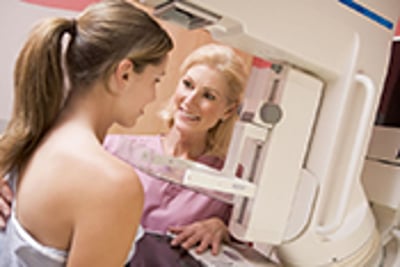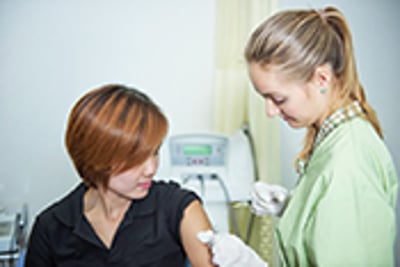FORCE's eXamining the Relevance of Articles for You (XRAY) program looks behind the headlines of cancer news to help you understand what the research means for you.
XRAY is a reliable source of hereditary cancer research-related news and information.
Learn more about the XRAY program
Relevant for: previvors, In portal: Breast Cancer
Relevance: Medium-High


Quality of Writing: High


Article : Preimplantation genetic diagnosis and hereditary cancer
Most relevant for: people with an inherited mutation linked to cancer risk
Andrew Joseph’s piece for STAT, “A baby with a disease gene or no baby at all: Genetic testing of embryos creates an ethical morass,” focuses on preimplantation genetic diagnosis (PGD) and the emerging ethical issue in the field of reproductive medicine: What to do when patients seeking to get pregnant select embryos with DNA that could lead to a disease or a disability. (11/8/17)
Read More
Relevance: High


Strength of Science: Medium


Study : Alcohol and breast cancer risk in African American women
Most relevant for: African American women who would like to lower their breast cancer risk
The link between alcohol intake and breast cancer is well known, but most studies have involved only White women. Recently, a large study of more than 22,000 African American (AA) women found that similar to White women, increased alcohol consumption is associated with a greater risk of breast cancer. (10/27/17)
Read More
Relevance: Medium


Quality of Writing: Medium-High


Article : Mixed reviews of at-home genetic testing
Most relevant for: People who are considering or have had direct-to-consumer testing
National guidelines recommend that patients meet with a genetics expert before undergoing genetic testing for cancer risk. Genetic counseling can help patients decide whether genetic testing is right for them and order the most appropriate test. Once test results are available, genetics experts also help patients understand their results. Over the last decade, the popularity of direct-to-consumer (DTC) genetic testing, such as 23andMe has grown. Some genetic tests are marketed to consumers on television, in print advertisements, and on the Internet. These “at-home” genetic tests give people direct access to their genetic information without first involving a healthcare provider in the process. A recent report outlines the benefits and limitations of DTC genetic testing. (10/20/17)
Read More
Relevance: Medium-High


Strength of Science: Medium


Study : Beauty and the breast: hair product use and breast cancer risk
Relevance: Medium-High


Strength of Science: Medium


Most relevant for: Women who use hair products who are concerned about their risk for breast cancer
Past studies using mostly animal models showed a link between use of hair products (dyes, straighteners and relaxers) and increased risk of certain cancers. In this study, researchers looked at data on hair product use among African-American (AA) and White women to see if certain types of hair products increased breast cancer risk, and how that risk might differ between race and breast cancer hormone status. (9/27/2017)
Read More
Relevance: Medium-High


Quality of Writing: Medium-High


Article : Can lifestyle changes impact breast cancer risk?
Most relevant for: Any woman concerned about her risk for breast cancer
A recent New York Times article shared how “adopting protective living habits” could help keep breast cancer “at bay”. While many of these lifestyle changes and strategies like not smoking, avoiding weight gain, reducing alcohol consumption, eating a heart-healthy diet, and increasing physical activity have been shown to reduce breast cancer risk, there are other risk factors that one cannot control such as having a BRCA or other mutation that significantly increases breast cancer risk. Importantly, no one strategy has been proven to totally eliminate breast cancer risk. However many of these approaches have overall health benefits. (9/21/2017)
Read More
Relevance: Medium-High


Strength of Science: Medium-High


Research Timeline: Post Approval


Study : Does expanded genetic testing benefit Jewish women diagnosed with breast cancer?
Relevance: Medium-High


Strength of Science: Medium-High


Research Timeline: Post Approval


Most relevant for: Jewish women with breast cancer who previously tested negative for the three most common BRCA mutations
BRCA1 and BRCA2 mutations are common in people of Eastern European (Ashkenazi) Jewish descent. About 2% of all Ashkenazi Jewish people will test positive for one of three common mutations in these genes. Genetic testing for Jewish people sometimes focuses on only the three most common mutations. For Jewish women with breast cancer, little is known about their chance of carrying a different hereditary mutation that may increase risk. This study looked at expanded genetic testing in Jewish women diagnosed with breast cancer to learn how often they carried mutations other than the three most common BRCA gene mutations found in Ashkenazi Jewish people. (09/13/17)
Read More
Relevance: Medium


Strength of Science: Medium-Low


Study : Breast cancers can disappear without treatment: fact or fiction?
Relevance: Medium


Strength of Science: Medium-Low


Most relevant for: Women with abnormal mammograms
Previous studies and news headlines have reported that it is possible for breast cancers to regress or disappear on their own. Is this true? The authors of the current research study show that of 479 untreated breast cancers detected by screening mammography, none regressed or spontaneously disappeared on their own. (9/7/17)
Read More
Relevance: Medium-High


Quality of Writing: High


Article : Parents face challenges when deciding the best time to tell children that they may be at high risk for cancer
Relevance: Medium-High


Quality of Writing: High


Most relevant for: Parents who have an inherited gene mutation
When certain types of cancers run in families, genetic testing can determine whether the cause is hereditary. Genetic testing can help family members understand their cancer risk and make medical decisions to stay healthy. A test result can provide significant insight, but it also creates challenges for parents, because gene mutations that cause hereditary cancers can be passed from mothers and fathers to sons and daughters. People with these mutations must make difficult decisions about when to tell their children that they too may have inherited the mutation. (8/22/2017)
Read More
Relevance: Medium-Low


Strength of Science: Medium-Low


Research Timeline: Animal Studies


Article : Report on vaccines to prevent hereditary cancer
Relevance: Medium-Low


Strength of Science: Medium-Low


Research Timeline: Animal Studies


Most relevant for: High risk women who have not had breast cancer
On 05/30/2017, Good Morning America aired a segment entitled “Can a vaccine help prevent breast cancer at its earliest stages?” The story outlines the need for cancer prevention and hints at early research into a cancer vaccine. (8/1/17)
Read More
Relevance: High


Strength of Science: High


Research Timeline: Post Approval


Study : New cancer risk estimates for BRCA1/2 mutation carriers
Relevance: High


Strength of Science: High


Research Timeline: Post Approval


Most relevant for: Women with an inherited mutation in BRCA1 or BRCA2
Cancer risk estimates for BRCA1 and BRCA2 mutation carriers are important because they impact patient decision-making. Until now, almost all risk estimates for mutation carriers were based on results of retrospective studies that looked back on mutation carriers who had cancer. This new study is prospective—it followed almost 10,000 BRCA mutation carriers without cancer to see if or when they developed breast or ovarian cancer. The cancer risk estimates of this study may be more accurate because it followed mutation carriers who did not have cancer over time. (7/28/17)
Read More